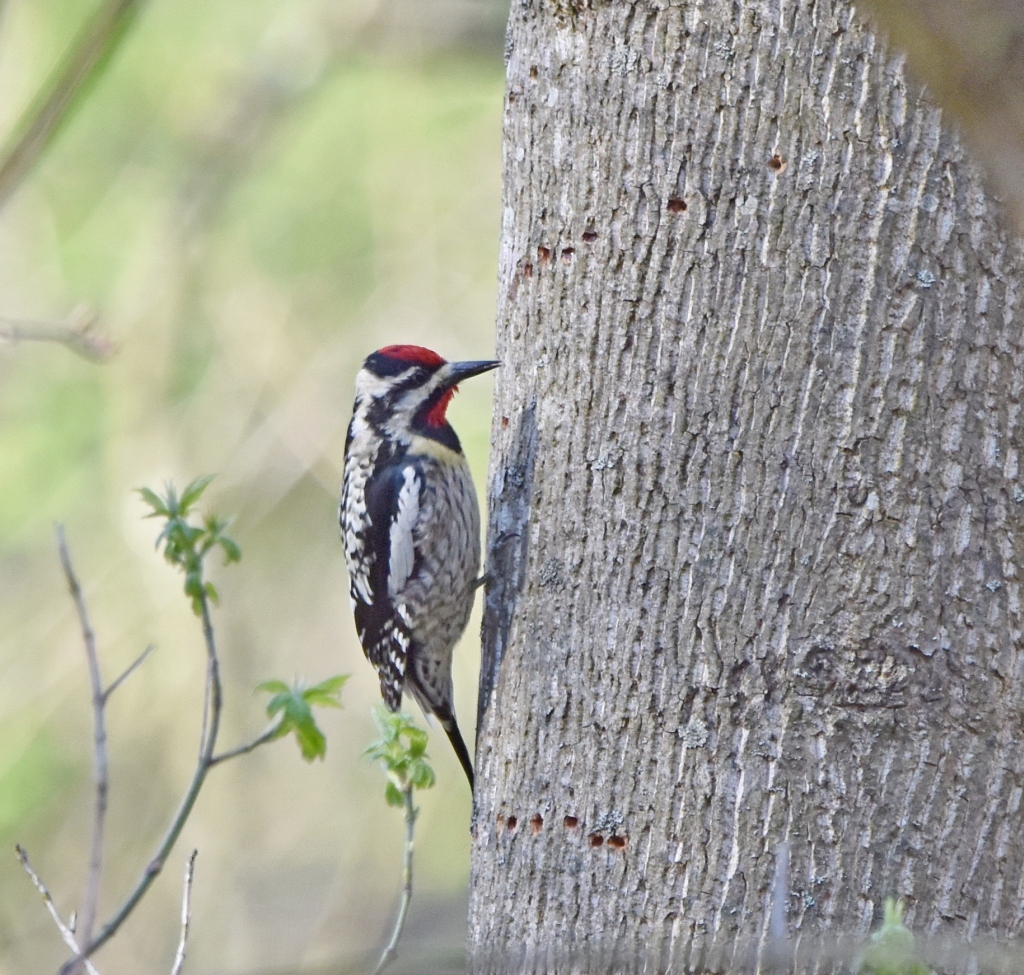
15 April 2024
Twelve of us gathered in yesterday’s perfect weather for an outing in Schenley Park.
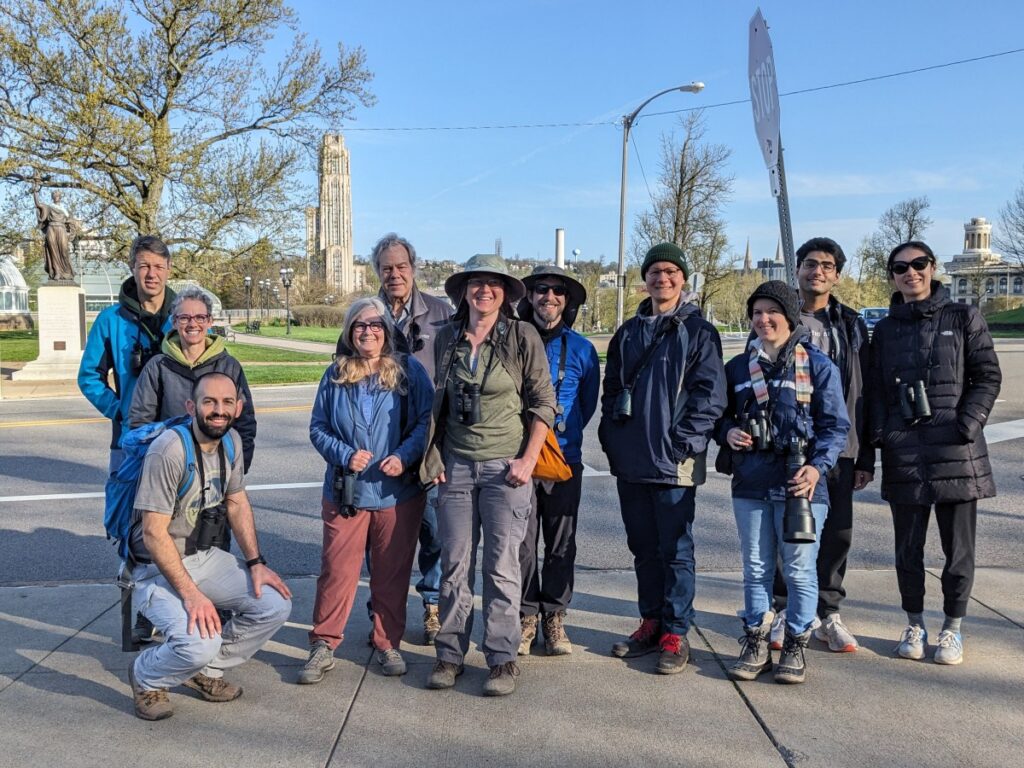
When I announced the outing, I said we had a good chance of seeing yellow-bellied sapsuckers and indeed we did — at least four plus an interesting interaction between a male and female.
Was this pair migrating together? Birds of the World says Not likely. Male yellow-bellied sapsuckers migrate first, the females follow later. When the males reach the breeding grounds they drum and squeal to establish territory and attract a mate. There was no drumming and squealing in Schenley (they don’t breed here) but the two birds followed each other from tree to tree. One of them seemed annoyed. Was the other “stealing” sap from his/her holes?
There were plenty of holes to choose from. The sapsuckers redrilled old rings on shagbark hickories and made new rings on tuliptrees.
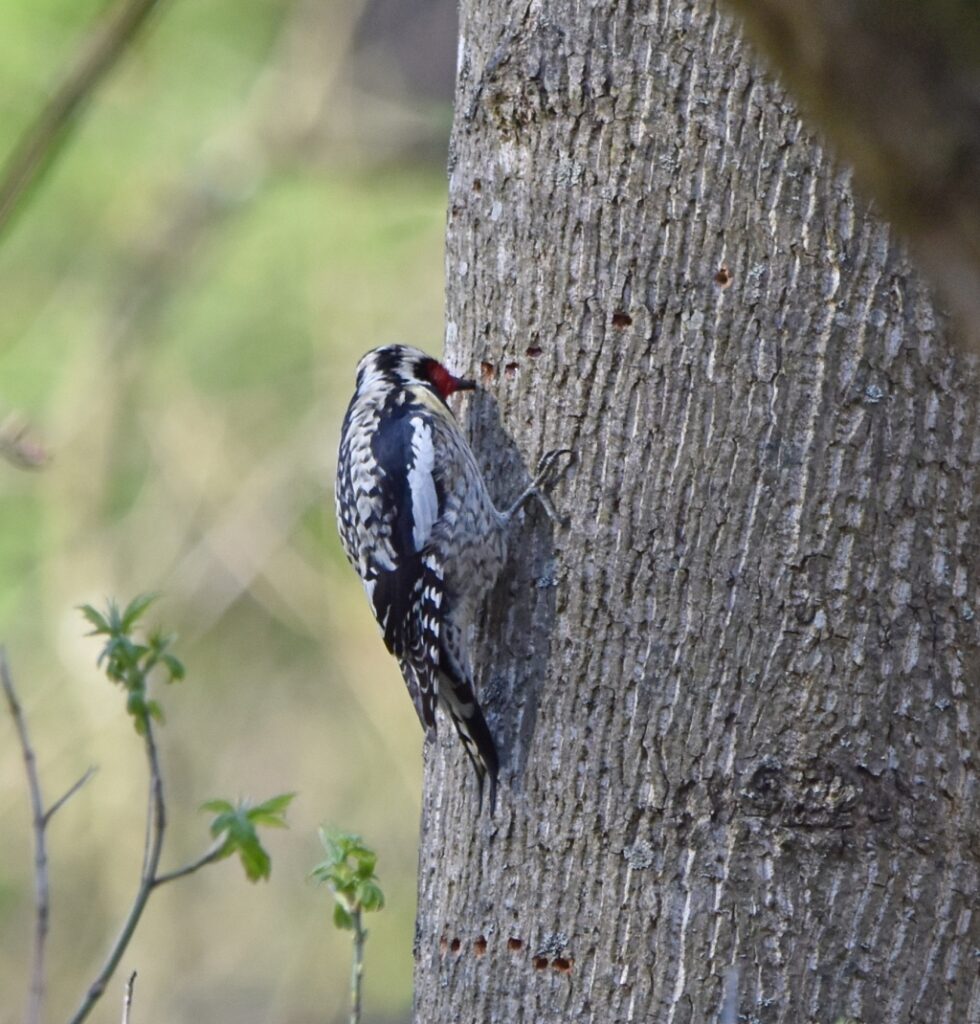
We also saw nest building among blue jays (a pair) and red-winged blackbirds (just the female) …
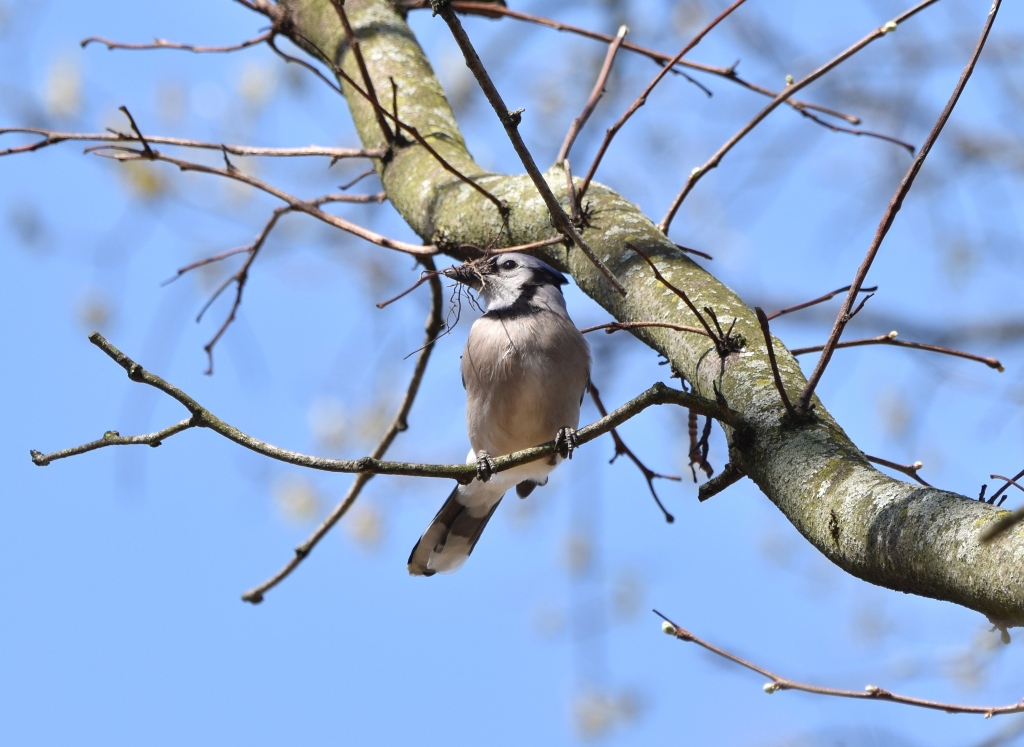
… and a pair of red-tailed hawks incubating eggs in last year’s successful nest under the bridge.
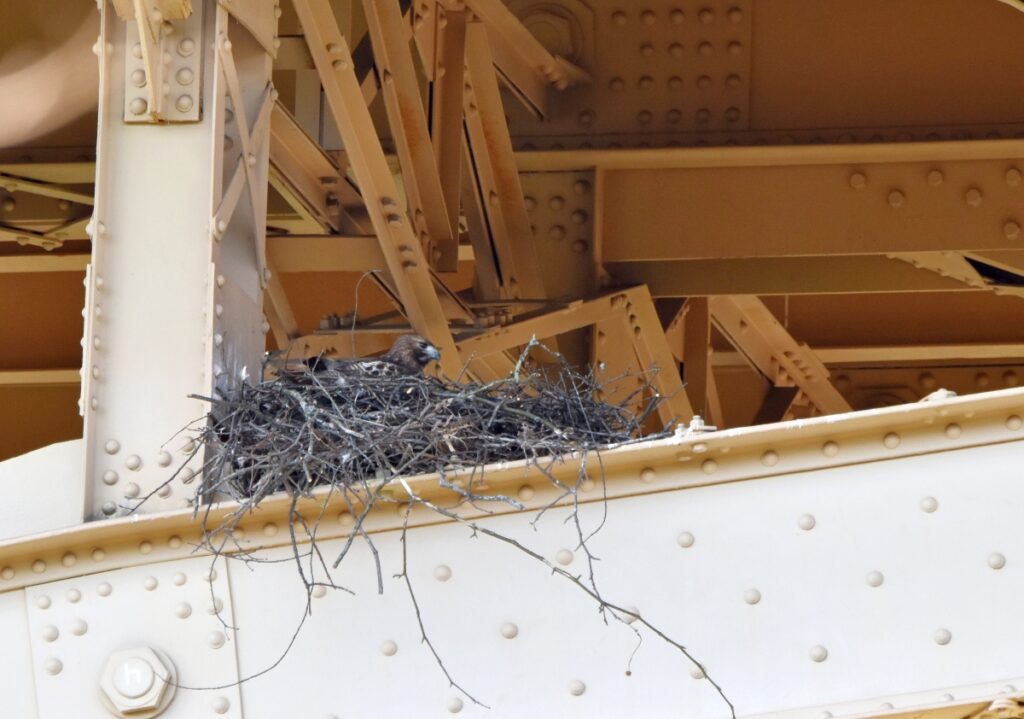
There aren’t many wildflowers in Schenley Park because of abundant hungry deer but we saw a few foamflowers (Tiarella sp) in an inaccessible spot.
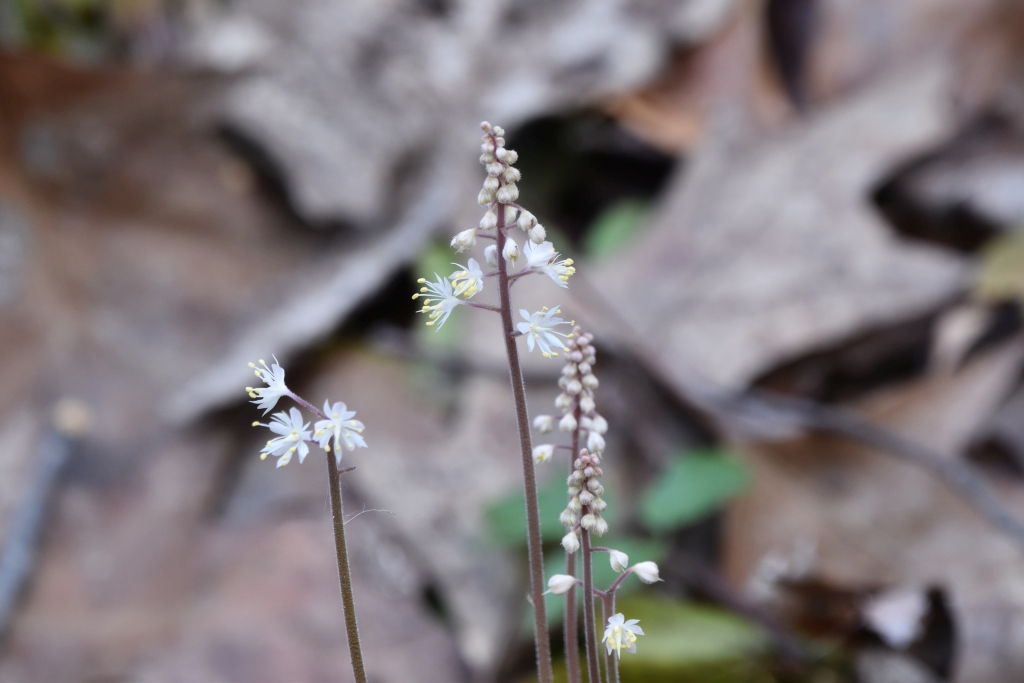
Can you see the flying honeybees and honeycombs in this photo? The hive is so high up (20-30 feet) that we wouldn’t have seen it if we hadn’t been looking for birds.
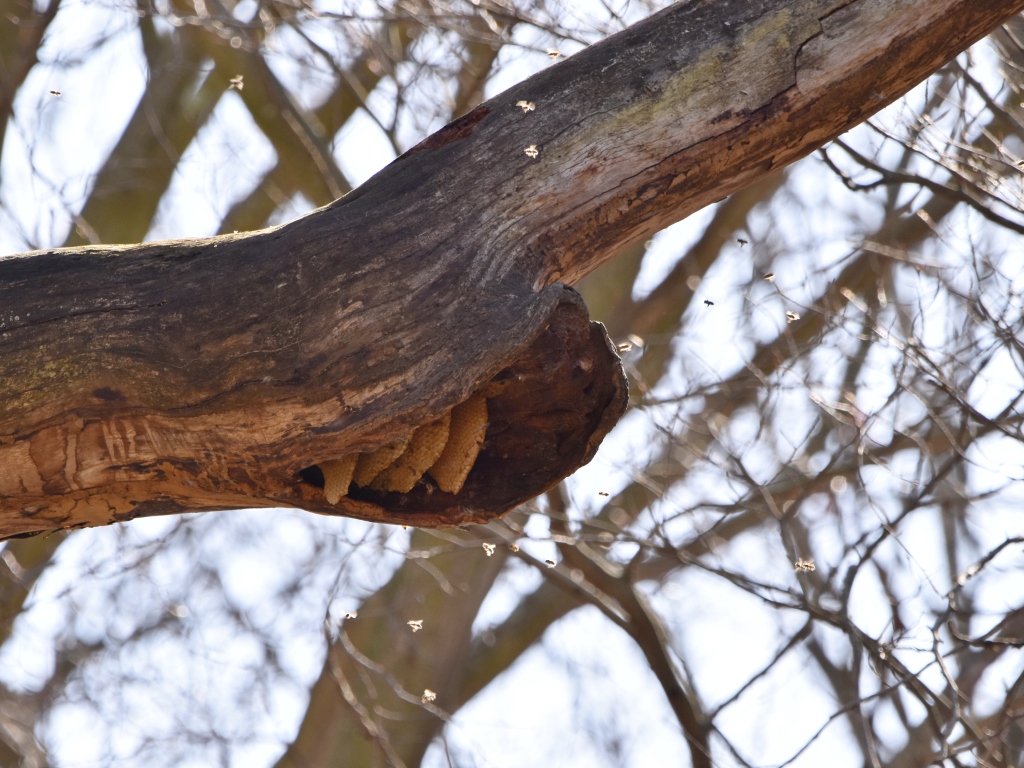
In all, we saw 33 species and lots of breeding behavior. Our last sighting was a surprise: two bald eagles, an adult and an immature, circling northward in Junction Hollow. I wondered if one of the Hays eagles was escorting an immature intruder away from the Hays nest.
See our checklist below and online at https://ebird.org/checklist/S168641182
Schenley Park, Allegheny, Pennsylvania, US
Apr 14, 2024, 8:30 AM – 10:45 AM, 33 species
Canada Goose (Branta canadensis) 4
Mourning Dove (Zenaida macroura) 2
Cooper’s Hawk (Accipiter cooperii) 1 Immature
Bald Eagle (Haliaeetus leucocephalus) 2 One adult & one immature flying/soaring up Junction Hollow.
Broad-winged Hawk (Buteo platypterus) 1
Red-tailed Hawk (Buteo jamaicensis) 2
Yellow-bellied Sapsucker (Sphyrapicus varius) 4 Drilling and sipping sap, especially on trees with well established sapsucker rings on bark.
Red-bellied Woodpecker (Melanerpes carolinus) 2
Downy Woodpecker (Dryobates pubescens) 4
Northern Flicker (Colaptes auratus) 6
Eastern Phoebe (Sayornis phoebe) 2
Blue Jay (Cyanocitta cristata) 7 Two jays carrying nesting material to same nest area.
Fish Crow (Corvus ossifragus) 1 Heard
Carolina Chickadee (Poecile carolinensis) 5
Tufted Titmouse (Baeolophus bicolor) 4
Northern Rough-winged Swallow (Stelgidopteryx serripennis) 4
Ruby-crowned Kinglet (Corthylio calendula) 2
Golden-crowned Kinglet (Regulus satrapa) 2
White-breasted Nuthatch (Sitta carolinensis) 2
Brown Creeper (Certhia americana) 2
Carolina Wren (Thryothorus ludovicianus) 4
European Starling (Sturnus vulgaris) 5
American Robin (Turdus migratorius) 6
House Finch (Haemorhous mexicanus) 5
American Goldfinch (Spinus tristis) 3
Chipping Sparrow (Spizella passerina) 1
Dark-eyed Junco (Junco hyemalis) 4
White-throated Sparrow (Zonotrichia albicollis) X Heard
Song Sparrow (Melospiza melodia) 5
Red-winged Blackbird (Agelaius phoeniceus) 9 Female building a nest.
Brown-headed Cowbird (Molothrus ater) 3
Common Grackle (Quiscalus quiscula) 3
Northern Cardinal (Cardinalis cardinalis) 6
(all photos by Charity Kheshgi except for the people-photo by Kate St. John)
Thank you for leading these, and to all who see and know so much and are willing to share with an ignorant neophyte like me.